Auntie Flo interview: the meaning of it all
A rich conversation with the DJ, producer, label owner & sound therapist, discussing new music, the impact of time, the psychology of self-releasing, the politics of music categorisation and more.
Calling me from his new house in North London, music multitasker Auntie Flo has just downed tools from a day of interior decorating.
“I’ve had the fun old task of putting up wallpaper today, which I’ve actually messed up pretty badly. I’m not a DIY kind of guy.”
Yet, just a fleeting glance at the immense CV of Auntie Flo, real name Brian d’Souza, reveals a career rooted in the art of doing-it-yourself.
The DJ, producer, label and business owner today releases his fourth studio album, In My Dreams (I’m A Bird And I’m Free), via A State of Flo records, a label he created last year to focus on the biological and ecological basis for songs.
His latest LP is a compendium of tracks about places, and the red-tape that humans have established to police the movement between them.
“The whole migration thing came into focus through Mame N’Diack Seck Thiam, a Senegalese percussionist who came on tour with us. He moved to Amsterdam from Uganda, but was effectively a prisoner, not being allowed residency status or to travel.”
d’Souza highlights the stringency of the European border policies, which meant that Thiam may not have been able to return to his loved ones if he left the country.
“There was a risk he wouldn’t be able to get back into the country to see his kids. We went through this 2-year process of visa systems, which was tough.”
Over-zealous bureaucracy wasn’t the only factor at play here, as Auntie Flo details how the mindset, outlook and criteria that surrounded these barriers were rooted in suspicion.
“It was always assumed he was guilty before innocent; judged for wanting to do something illegal until he could prove otherwise.”
Below, Auntie Flo and Mame N’Diack Seck Thiam perform ‘Mame’s Story’, a track that explores the difficulty African artists face when asked to perform in the UK:
On the new record, the listener is transported in seamless fashion across myriad sounds drawn from global locations, via interludes of bird-flight. It’s a reference to the migratory ease of animals, vis-à-vis the often impenetrable man-made lines that separate international human movement.
d’Souza’s inclusion of animal metaphor stems from the contrast between how species experience the world.
“Animals have their own umwelt [a German word for environment, to denote an organism's unique experience of the world], their own sphere of experience and way of seeing the world.”
“Every species’ umwelt is different: birds’ umwelt covers this massive area of the world. Over millennia, they have become well-suited to that way of seeing things. On the other side, an earthworm will have a very small umwelt in their patch of ground in the garden.”
Auntie Flo finds these varying veils of perception to be a humbling way to frame how humans see themselves.
“It helps to level the playing field when you think of human exceptionalism and being top of the food tree. Our intelligence, as measured by things like IQ, is only relevant to us. I’m not denying these faculties, but animals have their own.”
This interest in the natural world stretches further, as we begin to discuss the foundations for some of the tracks on the album.
Lead single ‘Green City’ stems from a field recording in Nairobi, and I’m interested in whether Auntie Flo uses these moments as initial inspiration, or if he searches for them after a track is born.
“A field recording is a good way for me to start off with meaning. It may not mean anything to anyone else, but it means something to me. It helps me to feel inspired to make that song and tell a story.”
“With ‘Green City’, I just got my iPhone out and recorded a random scene that I thought could be interesting. In the same way we take photographs, I guess I do the same thing with soundscapes. Then I made a track, just by myself, based on that recording. A sketch.”
With the scaffolding of an idea in place, Auntie Flo builds from hereon in, drawing on his unique network of talent across the industry.
“The second part of the process was working with other musicians, the first of whom was Yohan Kebede, the keyboardist from KOKOROKO. He’s an incredible talent – as soon as he came in, he put down this glorious piano part that was totally revelatory.”
As a skeleton became a structure, d’Souza called upon Brownswood honcho Gilles Peterson to lend a listening ear.
“The track sat there for ages just as an instrumental. I played it to Gilles Peterson who agreed it needed a vocal.”
“It took me a long time to find the perfect vocalist. I loved the work of Ambasa Mandela from the band Saraba in Kenya. He recorded the ideal vocals for the track in Kenya and sent it over.”
Collaboration is central to Auntie Flo’s modus operandi, and he’s happy to hand over creative agency to those he works with, knowing that he has the parameters in place to render rough diamonds into audience-ready condition.
“There’s minimum direction from me. We’ll just work on things as they best see it. As a DJ first and foremost, I guess I have a good ear for what could work to an audience or a dancefloor.”
“Musicians will tend to spin out with all the flourishes at their disposal. Sometimes it’s just a chop or loop that’s needed for the record, but I’ll always try and respect their musicianship.”
What emerges as we lift the lid on the album’s tracklist is that Auntie Flo is acutely aware of his surroundings. Whether it’s nature, his creative network or memories from his past, the artist leaves no stone unturned when it comes to fuelling the fire.
The sixth track on the album, ‘Aker the Lion God’, continues in this vein, looking at ways to defy the assumed theses of time and and musical structure.
“I was in Waiheke Island. Randomly, in the middle of nowhere, I sat on this bench which had a placard that said ‘Aker the Lion God’. I recorded the soundscape on the bench – crickets, cicadas, etc.”
He then used a Brazilian conch shell to play over the field recording, but mapped it to the nature sounds he’d recorded, thus allowing the crickets and cicadas to be the timekeepers of the music.
It’s hypnotic, too, with a repetitive bassline that will etch into your brain in an instant.
“Looking back, the bassline reminds me of Charanjit Singh. We booked him for one of our Highlife parties in 2012 – he had this little notebook with all his drum machine settings in it, but it was really dark so he couldn’t see how to change the bassline on his set up. So, he played the exact same bassline for the whole set. It became etched in my head, forever there.”
As we discuss music from Easterly pastures, we turn to the topic of enculturation - the idea that the rhythms and tonalities of our culture’s music are encoded in our brains from our early years.
I wonder if the rigid, 4-4, major-key sensibilities of the Western World drew Auntie Flo to purvey sounds from other spheres. He doesn’t see it this way, highlighting the important place these structures have in the historical tapestry of electronic music.
“You can consider the notion of timing. The way music production takes place right now means that we’re all subservient to the metronome. All of dance music exists to serve. Everything is perfect. There’s a certain beauty in that – if we look back at the likes of Kraftwerk and afro-futurists such as Juan Atkins – it’s meant to be like that. It’s meant to be something that artificial intelligence could put together. It’s too precise for what humans could do.”
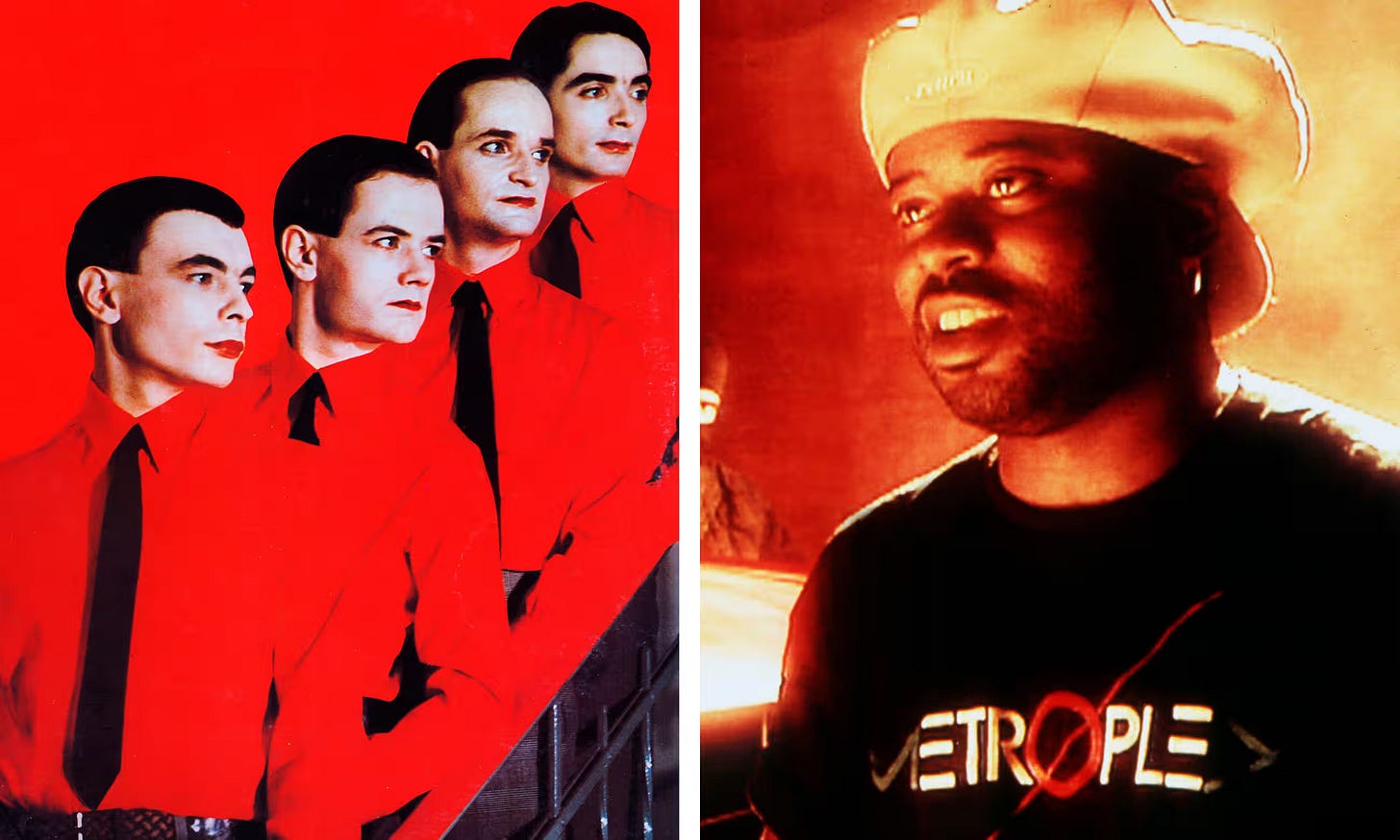
He admits that the likes of Logic and Ableton have their limits, though, but explains how this prompted him to dig even deeper into alternative ways of consuming sound through his sound therapy business Swell Studio.
“With these DAWs, you get pushed into conforming to certain structures, and timing is one of them.”
“Something I learned through my sound therapy training is to channel the opposite of that. Sound baths, for example, are a deep bath of sound without tempo. Humans naturally search for patterns, but when they find none, they have no choice but to relax back into the song.”
You can see Auntie Flo’s use of sound therapy through his Swell Soundscape project below:
We move onto the impact of time. In My Dreams took half a decade to put together, and I wonder if Auntie Flo’s reasons for starting the record still rang true on the day he finished it.
“I think the reasons were largely the same by the end, but in the middle they weren’t. Heading into COVID, I was needing a break from touring, travelling & DJing. I’d just become a dad for the first time.”
“After the second lockdown, I lost my dad suddenly, and there were numerous other incidents around that time. I couldn’t deal with club music or dance music. I needed a break. I thought at that point that I might just pack it all in.”
So, this 5-year stretch was more a hiatus from the album as opposed to an extensive time writing it, and the impromptu burdens of life spurred the artist to soak up the nutrients of other fields of interest.
“I started off the Ambient Flo radio, I trained as a sound therapist, I went back and started reading lots of books.”
“The most important thing with the radio station is that it really helped people during lockdown. You can either surrender to it in the Eno sense, or you can actively listen to it if you want to go deeper into the listening experience.”
As these escapades into calmer waters developed, Auntie Flo slowly returned to a place where he felt ready to face the music again.
“A year ago, I emerged out of it all as I began to really miss it, and I decided I really wanted to get back out there.”
Time also impacts the industry itself, as the vessels of music consumption have changed dramatically across the last decade. I’m curious as to whether this transition into a digitised epoch has impacted how the finished product feels.
“There’s three phases in making music. The making process, which is the highest point, where you’re in this flow state, channelling your creative energies into something and it’s manifested itself into a piece of music - the ecstatic high is that moment.”
“The second phase is showing it to friends & family, which is lovely to see how it impacts people. Then the third phase is sharing it with the wider world.”
Recognition for recognition’s sake isn’t on Auntie Flo’s radar, but he is able to draw pleasure from those that feel a close connection with his output.
“The fact that people like it is nice. It’s never going to be as high a moment as when you’re in the studio making it, but for those that really really get it, that makes the work even more worthwhile.”
This outlook is perhaps best typified by his interaction with Manchester legend Luke Una, who described ‘Green City’ as ‘one of those tracks of the last ten years that has blown my mind’.
“I sent the vinyl of the album to Luke Una. Eventually, he told me he’d got the records. Then later down the line, he started messaging me on Instagram – “fuck me this record’s good!”. The vocal hadn’t even come in at this point – he was real-time messaging me whilst listening to the track, so when it came in he went nuts!”
However, this sliding scale of satisfaction along the chronology of the creative process does make Auntie Flo question the reason for releasing anything.
“You’re never going to enjoy it as much as when you were in the studio making it. So it’s sort of like ‘what’s the point of all this?’”
As we continue our conversation, the point of it all becomes clear. Auntie Flo makes music because, like the birds in his new record, it has the power to traverse the barriers of the world, binding people together in ways that language can’t.
“I refer back to this meta-analysis that looked at whether there is such a thing as universal music. There seems to be four commonalities – sleep songs, love songs, dance songs and healing songs.”
“I think that’s a nice thing to think about, as dance music can be quite a fractured landscape and cliquey. But it’s just all dance music! There’s more that brings us together than not.”
You can buy Auntie Flo’s latest record, In My Dreams (I’m A Bird And I’m Free) here:
You can also follow Auntie Flo’s label and other projects via his newsletter here:
You can learn more about and donate to Earth Percent, the charity that Auntie Flo donates 10% of his profits to here.
Read our other interview pieces here.




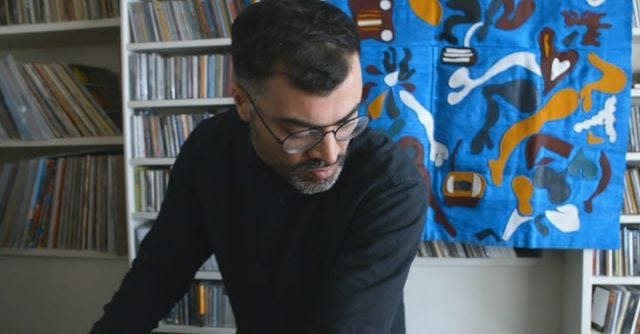
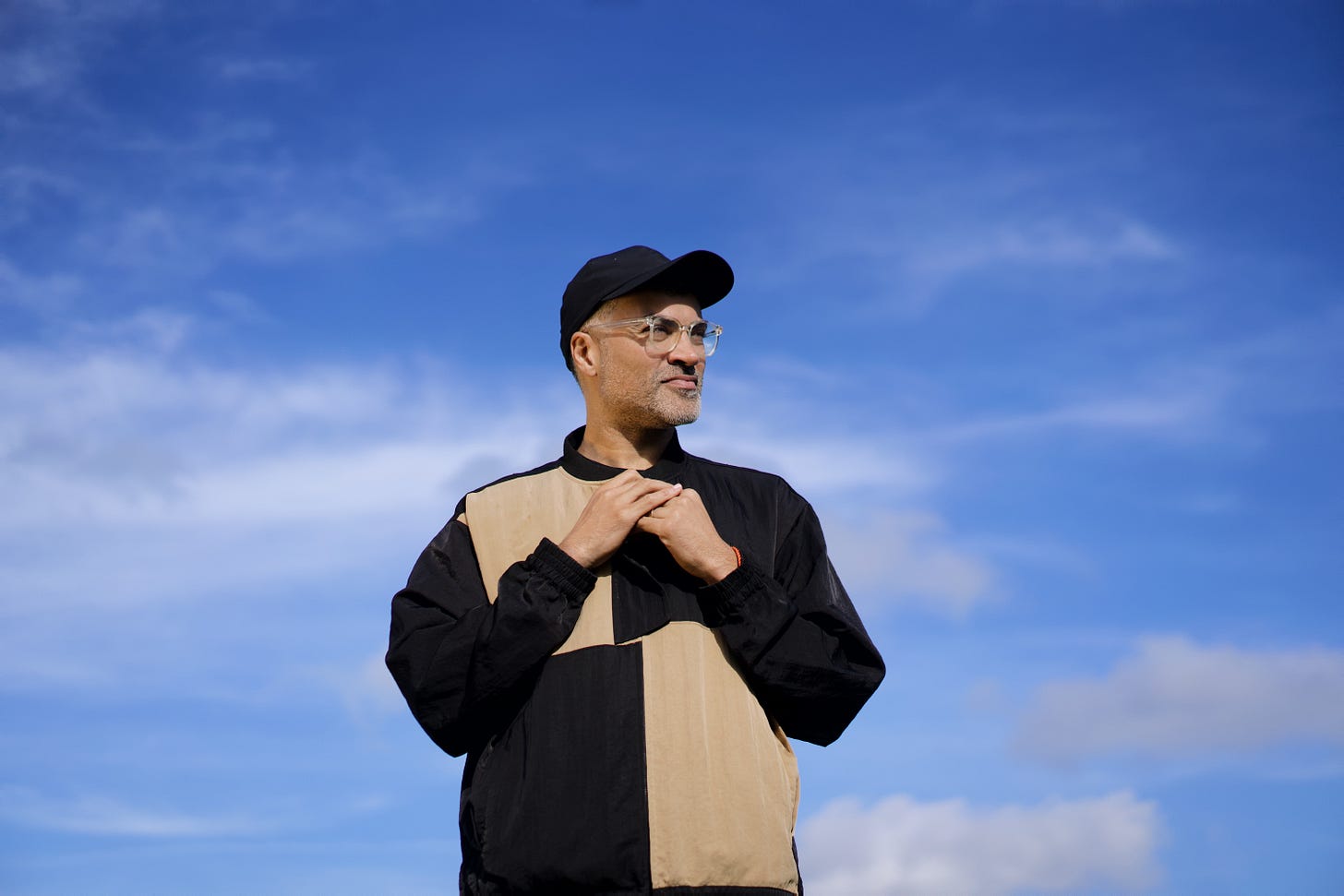
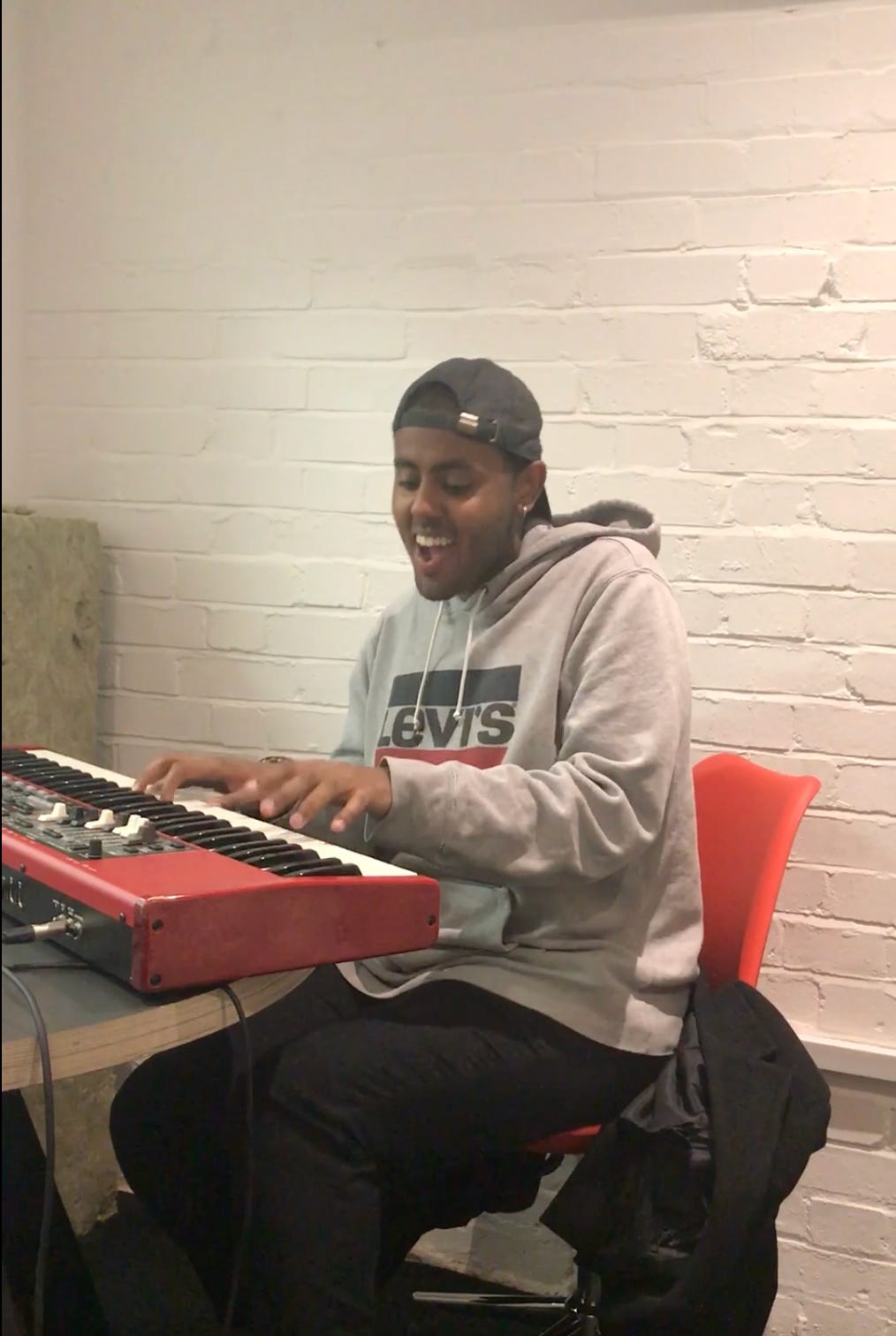
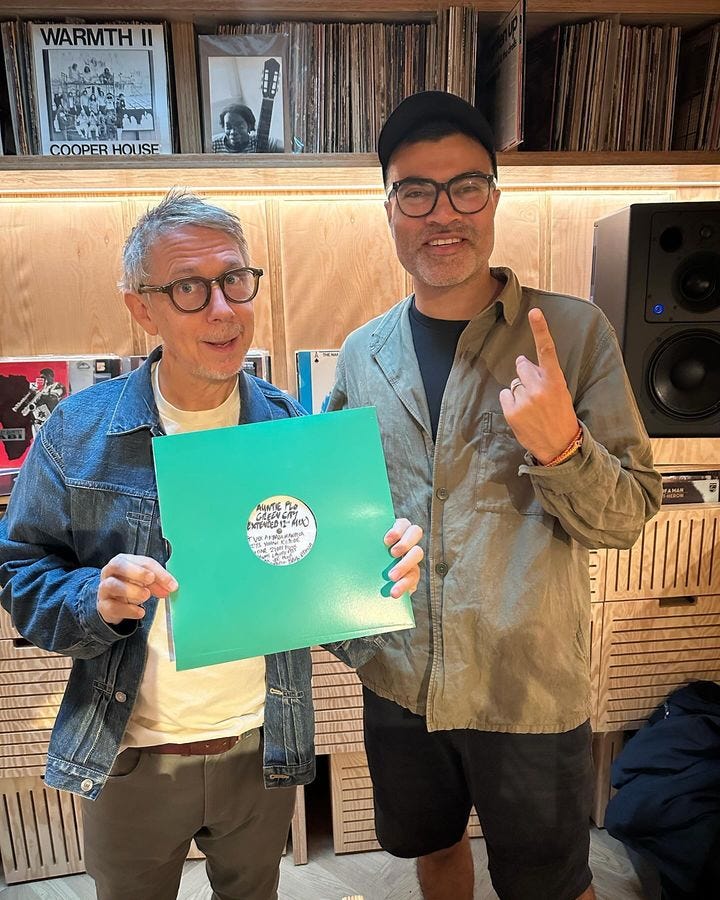



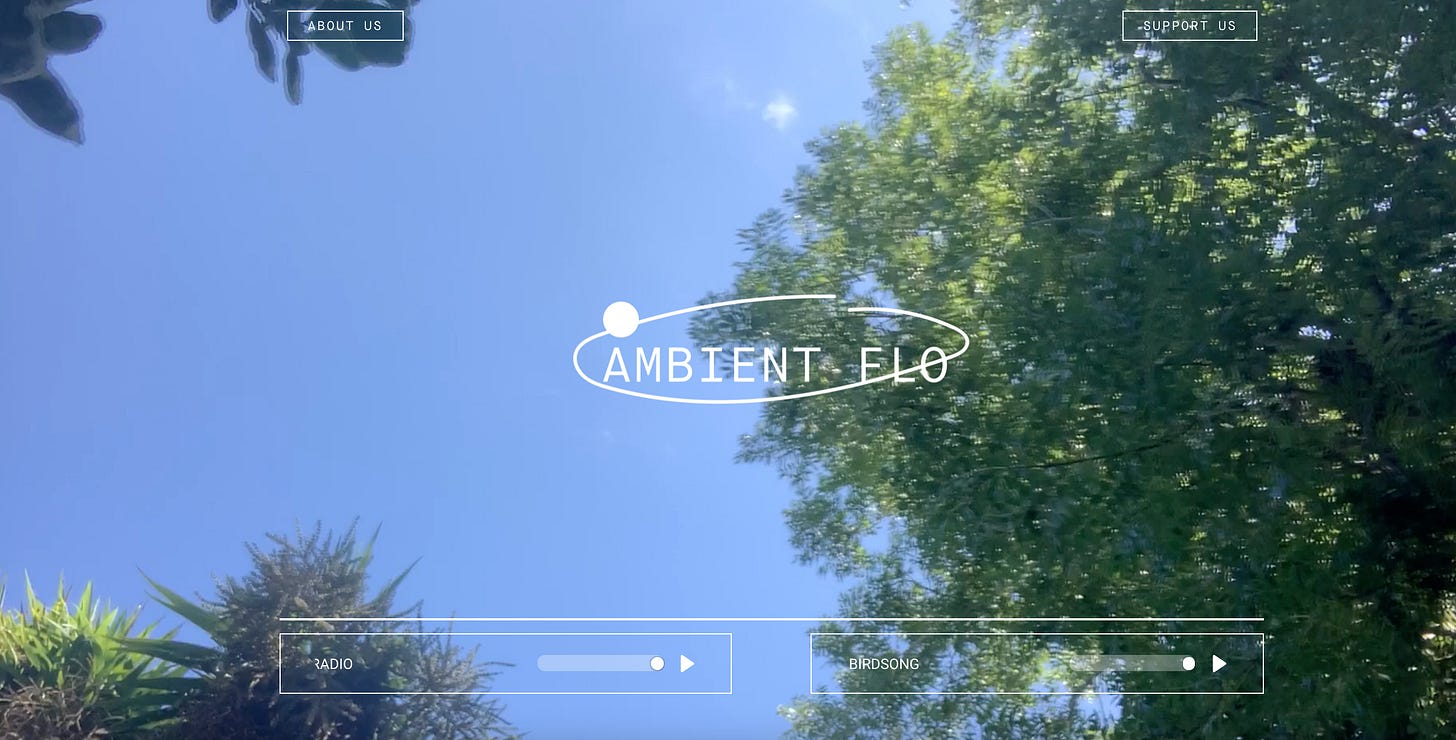

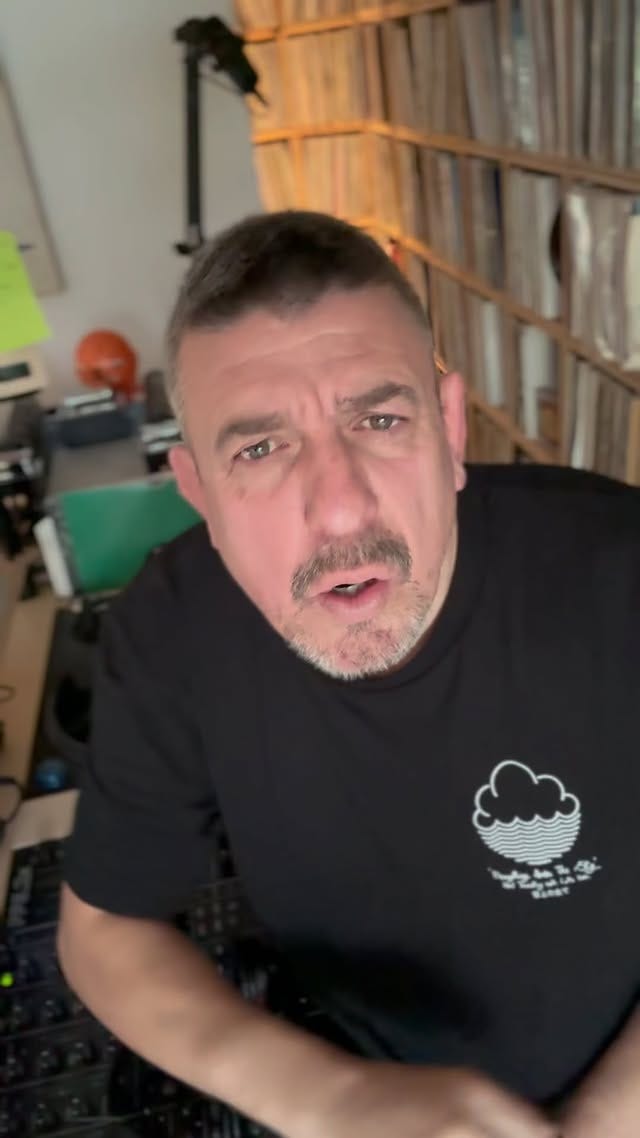


Thanks will!